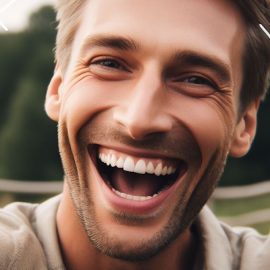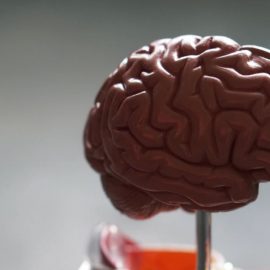

This article is an excerpt from the Shortform book guide to "Flow" by Mihaly Csikszentmihalyi. Shortform has the world's best summaries and analyses of books you should be reading.
Like this article? Sign up for a free trial here .
What does it mean to reach a “flow state”? What does flow feel like?
In his book Flow, Csikszentmihalyi explains the flow state as the state we’re in when nothing else seems to matter and we lose track of time. There are many different ways to achieve a flow state, which we will discuss in this article.
Continue below for more details on the flow state and how to achieve it.
What Is Flow State?
Before we can discuss how to achieve a flow state, we must first explain what “flow state” is. In his book Flow, Csikszentmihalyi found that people are happy when they feel a sense of control over their thoughts and feelings. When this happens, we experience a flow state: We enjoy ourselves, feel a sense of purpose and meaning, and other things don’t seem to matter as much. Csikszentmihalyi also refers to these states as “optimal life experiences,” experiences that become a reference point for how life should be. For example, an artist who feels immersed in creating a beautiful painting is experiencing flow. It can also happen when you gain an important insight during tough times.
Optimal experiences occur most frequently when you’re voluntarily working hard to achieve something important. This requires being in control of your circumstances, which is often difficult work. For example, a swimmer who’s swimming the most difficult race of her career may experience muscle cramps and fatigue, but she may look back on the experience as incredibly worthwhile because she directed her actions and accomplished something admirable.
How to Achieve Flow
You may think your thoughts and feelings indicate what will bring you happiness, but this isn’t always true. Your thoughts and feelings may be influenced by biological needs, genetics, or how society has taught you to react in certain situations. According to Freud, socialization persuades people to follow social norms even if they don’t want to—it manipulates our biological needs to make us react predictably to punishments and rewards, thereby maintaining social order. For example, people will likely comply with a dictator’s rule because they’d prefer not to be killed.
Though it’s okay to seek what feels good and avoid what feels bad, it’s best to think independently so you don’t fall victim to manipulation. Plus, to consistently overcome life’s challenges, you need to break away from needing external rewards or punishments to achieve success—you have to provide rewards for yourself regardless of your circumstances.
Different disciplines have used different approaches to address this—for example:
- Yogis teach themselves to resist sexual desire and ignore pain.
- Zen practitioners create a sense of continuous spontaneity.
- Psychoanalysis aims to overcome the id and superego, in favor of the ego. The id represents the needs of your genes, the superego represents the desires of society, and your ego is your true needs based on your current environment.
Although we’ve developed ways to control our inner thoughts, it’s still difficult to apply this knowledge because:
- Every individual has to do the work. As with other complex teachings, it’s not enough to simply learn the information—you have to learn it and apply it to your life through trial and error.
- It has to be reshaped to fit the current cultural context. Society and culture are constantly changing. For ideas to be most effective, they need to be reformulated to match the society they’re being applied in. For example, Zen teachings made a lot of sense for the time and place they were created in, but it can be difficult to apply in modern California because it’s a different time and place. Plus, the emphasis can shift to practicing rituals a certain way rather than embracing what’s most helpful. To overcome this, people need to apply principles as they make sense. For example, Martin Luther cited his grievances with the Catholic Church as a rationale to create new practices that fit better with his version of Christianity.
Research Methods
To answer the question of what happiness is, Csikszentmihalyi recruited people around the world to participate in surveys about what made them happy. First, he looked at people who spent a lot of time doing the things they most enjoyed and excelled at it, such as chess players and surgeons. Later, he and his fellow researchers developed a sampling method where participants were asked to write what they were thinking about and feeling when prompted by a pager. Participants received about eight prompts per day. The ideas presented in the book are based on the results of these surveys. The concept of flow has inspired research around the world to understand what makes people happy and improve their quality of life.

———End of Preview———
Like what you just read? Read the rest of the world's best book summary and analysis of Mihaly Csikszentmihalyi's "Flow" at Shortform .
Here's what you'll find in our full Flow summary :
- Why people feel the happiest when they're in the "flow state"
- What activities and personality traits promote flow
- Why you may have a paradoxical relationship with work and leisure






